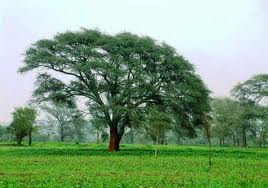Pygeum
From Health Wiki
Pygeum (prunus africana)
Contents |
Description
Pygeum trees are large evergreens which can be found growing in both the highland forests and plateaus of central and south Africa. It is also known as African plum and Pygeum Africanum. The bark is most commonly used for medicinal purposes.
Constituents and Actions
Pygeum contains phytosterols (sitosterols) and pentacyclic terpenes such as ursolic and oleanic acids. Also found in this herb are ferulic esters of long-chain fatty alcohols (particularly of codosanol and tetre-cosanol), such as ndocosanol and phytos.
The influences on the body are diuretic (increases the secretion and flow of urine), hormonal and anti-inflammatory.
Medicinal Uses
The chemical compounds in Pygeum include plant-type steroids which are highly valued for reducing swelling and inflammation of the male prostate. It helps to block the entry and breakdown cholesterol in the prostate gland, encouraging the production of certain prostaglandins which in turn creates an anti-inflammatory action.
Pygeum is the prescription of choice given by European doctors in cases of benign prostatic hyperplasia (BPH), a condition which involves a congested, enlarged and inflamed prostate. Symptoms often involve diminished urine flow and increased freqency of urination, especially during the night.
Pygeum can also be used as a preventative for prostate problems. It is frequently combined with other ingredients such as Saw Palmetto, pumpkin seed and zinc for prostate gland health. A common dose of Pygeum extract is 100-200mg per day taken in divided doses.
Following are some conditions and diseases in which treatment with Pygeum is helpful:
- Prostate gland (inflammation)
- Urinary problems
- Fever
- Inflammation
- Gastrointestinal upset
- Kidney disease
Side-Effects
There is no known toxicity, cautions or drug interactions with Pygeum.
